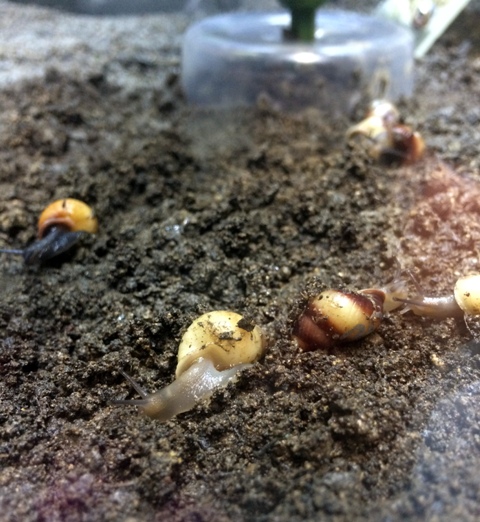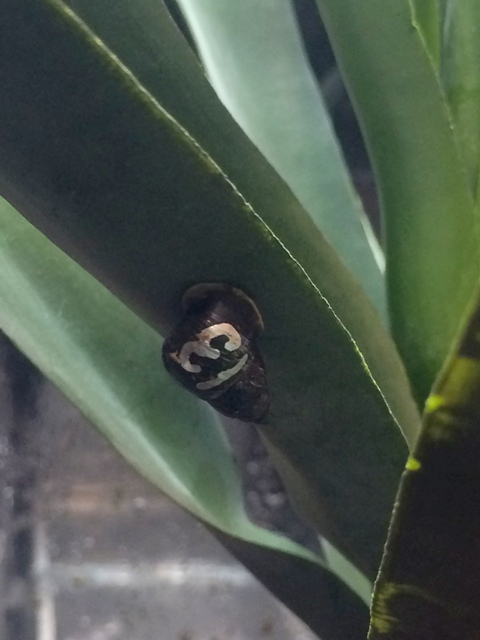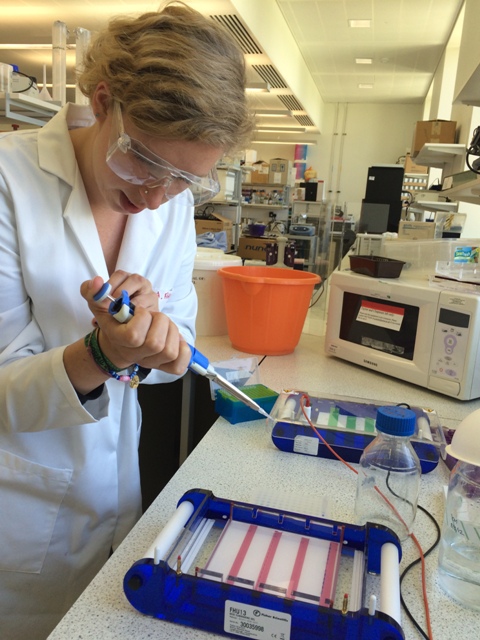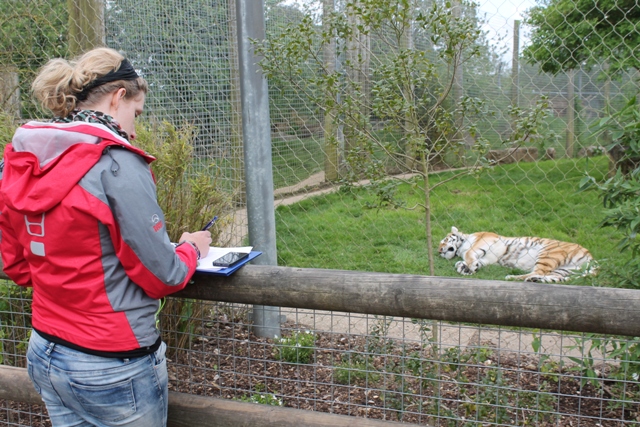Aimee
For the past five weeks, Marwell has been my home-away-from-home, as I have spent most of my days there collecting data for my research project. My project looks at the risk of genetic adaptation to captivity, focusing on adaptation in Partulid snails. The specific species I am studying, Partula varia, is extinct in the wild with captive populations held in just three zoological institutions. Marwell Wildlife is the main holding collection.
This species has been kept in captivity for a long period of time, in an environment far removed from that in which it evolved. As some individuals have traits that allow them to cope better in captivity, it is highly likely that, through the process of natural selection, the population has become adapted to this different environment. In the wild, Partulid snails shelter during the day on the underside of a leaf 2-3m above the ground, climbing down at night to feed on decaying plant matter. In captivity, they are held in a sterile tank with a moist paper towel base because they are highly susceptible to disease. Adaptation to zoo conditions may significantly impact on our ability to successfully reintroduce captive-bred individuals into their natural environments, which is why I am conducting research into this important area.
After a couple of challenges, firstly designing an experimental setup that tested the snails’ climbing ability, then determining how to individually identify 90 snails(!), I was able to begin my data collection. My three tanks were monitored twice a day for three weeks, where I recorded several variables for each individual, including: height and location in tank. The Herps team at Marwell were incredibly helpful during this time and I’m very grateful for their assistance.
Now that I’ve collected all of my data, I’m beginning the task of statistical analysis. I also plan to look at the genetic diversity between individuals both from my experiment and from historic preserved specimens from the Zoological Society of London.
I haven’t just been working on my project though! Whilst some of the others have been away, I’ve been assisting with observations of the big cats at Marwell. I’ve really enjoyed being able to get out into the zoo regularly and watch the cats, even when they’re sleeping!
More recently, I presented a poster at the university’s post graduate symposium, which was quite daunting but a very beneficial experience. I was able to talk to people who didn’t have a conservation background and listen to their different viewpoints on my project. Some of the questions asked have definitely made me think, and I’m sure the experience will be helpful when I present my work at the end of the course in September.
Earlier this week we were able to visit the animal surgery for a session with Marwell’s Head of Veterinary Services, Dr Will Justice. It was really interesting to be able to learn about some of the behind the scenes work done when caring for the animals in the zoo and to hear about some of the vet team’s experiences first hand.
We’ve had a varied array of experiences during this course and I’m sure there’ll be more to come! One of the highlights for me has definitely been having the responsibility of looking after a species that is not just endangered but extinct in the wild. I don’t think that is an experience I could have had anywhere else and it’s certainly not something I will forget!
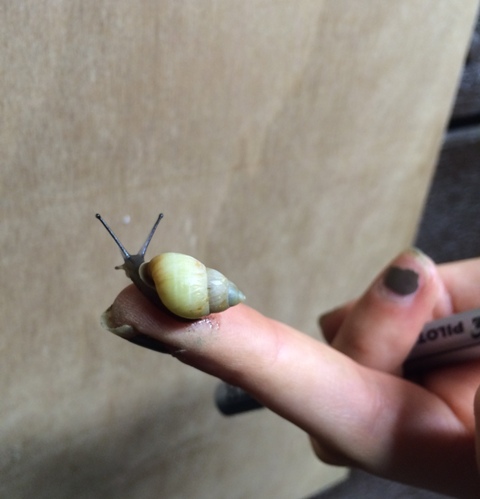
One of the adult Partula varia before marking – individuals are so small they can easily fit on the tip of your finger!
Posted By : dvf1e13
